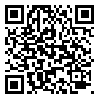BibTeX | RIS | EndNote | Medlars | ProCite | Reference Manager | RefWorks
Send citation to:
URL: http://ijme.tums.ac.ir/article-1-107-en.html
2- Medical Ethics and History of Medicine Research Center, Tehran University of Medical Sciences, Tehran; Department of Epidemiology and Reproductive Health, Reproductive Research Center, Royan Institute, Tehran, Iran
Rapid development in assisted reproductive techniques has brought hope to many childless couples, while it has created new social, ethical and legal dilemmas. Stored frozen gametes and embryos have led to situations where the surviving spouse wants to create offspring after the person's death. Also, the possibility of sperm retrieval even after 36 hours of death, and getting oocytes from aborted fetus or brain dead people has brought a new term: "posthumous assisted reproduction". Posthumous assisted reproduction is the most challenging, difficult, and sensitive issue to be discussed ethically and religiously. In this paper, the acceptability of the posthumous reproduction in Islamic context was evaluated. In Islamic societies where infertility is viewed as a problem of families, posthumous assisted reproduction seems unacceptable. Major concerns such as consent and ownership of the gametes after death, family, marriage and welfare of the child are discussed together with some legal issues. Based on infertility as a disease of family, posthumous assisted reproduction is unacceptable even with previously frozen gametes or embryos. Also, Islamic vision to marriage, consent and welfare of the child confirms the unacceptability. There must be law or guideline to ban this procedure in Islamic contexts.
Accepted: 2013/10/9 | Published: 2014/11/15
| Rights and permissions | |
 |
This work is licensed under a Creative Commons Attribution-NonCommercial 4.0 International License. |





